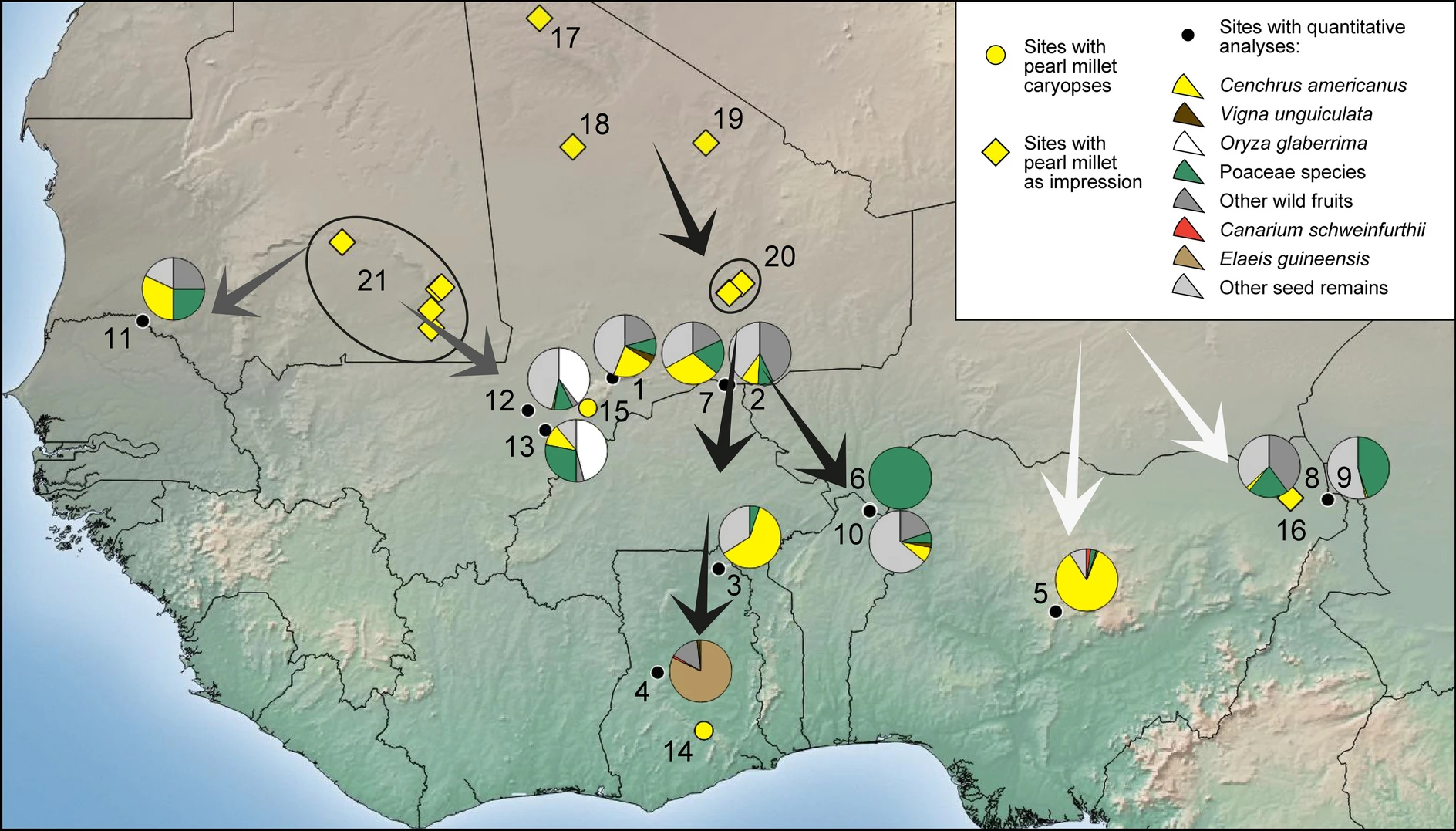|
Sunsum
In the spiritual practices of the Ashanti people and Akan people, the sunsum is one's spirit. The sunsum is what connects the body (honam) to the soul ( kra). The sunsum can be transmitted in a variety of ways, including from father to son during conception. This power is used to protect the carriers of this spirit. When a man dies, the sunsum returns to the metaphorical house of the father in wait to be reincarnated in the next son born of the men of that family. Another form of sunsum is the spiritual power that the Akan believe allows the possessors to practice witchcraft. This is called sunsum fee, or "dirty spirit". Unlike the genetic sunsum discussed before, this is a power that is willingly passed down, often by grandparents to grandchildren they feel deserve the power to wield such magic. In this manner, the sunsum can remain alive and well through a lineage. As males possess a natural sunsum, if they gain a sunsum fee they are twice as spiritually powerful as a woman who on ... [...More Info...] [...Related Items...] OR: [Wikipedia] [Google] [Baidu] |
Ashanti People
The Asante, also known as Ashanti in English (), are part of the Akan people, Akan ethnic group and are native to the Ashanti Region of modern-day Ghana. Asantes are the last group to emerge out of the various Akan civilisations. Twi is spoken by over nine million Asante people as their native language. The Asante people developed the Ashanti Empire, along the Lake Volta and Gulf of Guinea. The empire was founded in 1670, and the capital Kumasi, Kumase was founded in 1680 by Asantehene Osei Kofi Tutu I on the advice of Okomfo Anokye, his premier. Sited at the crossroads of the Trans-Saharan trade, Kumase's strategic location contributed significantly to its growth. Over time a number of peculiar factors have combined to transform the Kumase metropolis into a financial centre and political capital. The main causal factors included the unquestioning loyalty to the List of rulers of Asante, Asante rulers and the Kumase metropolis' growing wealth, derived in part from the capital's lu ... [...More Info...] [...Related Items...] OR: [Wikipedia] [Google] [Baidu] |
Akan People
The Akan () people are a kwa languages, Kwa group living primarily in present-day Ghana and in parts of Ivory Coast and Togo in West Africa. The Akan speak languages within the Central Tano languages, Central Tano branch of the Potou–Tano languages, Potou–Tano subfamily of the Niger–Congo languages, Niger–Congo family.''Languages of the Akan Area: Papers in Western Kwa Linguistics and on the Linguistic Geography of the Area of Ancient''. Isaac K. Chinebuah, H. Max J. Trutenau, Linguistic Circle of Accra, Basler Afrika Bibliographien, 1976, pp. 168. Subgroups of the Akan people include: the Adansi, Agona, Akuapem people, Akuapem, Akwamu, Akyem, Anyi people, Anyi, Ashanti people, Asante, Baoulé people, Baoulé, Bono people, Bono, Chakosi people, Chakosi, Fante people, Fante, Kwahu, Sefwi people, Sefwi, Wassa, Ahanta people, Ahanta, Denkyira and Nzema people, Nzema, among others. The Akan subgroups all have cultural attributes in common; most notably the tracing of royal m ... [...More Info...] [...Related Items...] OR: [Wikipedia] [Google] [Baidu] |
Akan Culture
Akan may refer to: People and languages *Akan people, an ethnic group in Ghana and Côte d'Ivoire *Akan languages, a language group within the wider Central Tano languages *Kwa languages, a language group which includes Akan *Central Tano languages, a language group which includes Akan Places *Akan (Ghana parliament constituency) * Akan District, Hokkaido, Japan ** Akan, Hokkaido, a town in Akan District, Hokkaido ** Akan National Park *** Akan Volcanic Complex, a volcano in Hokkaidō, Japan ***Lake Akan, a lake in Hokkaidō, Japan *** Akan River, a river in Hokkaidō, Japan * Akan, Wisconsin, a town in the United States Other uses * Akan religion, traditional beliefs and religious practices of the Akan people * Akan (surname), a surname * Akan names, names of Ghana origin *Akan (biblical figure), a person mentioned in the Book of Genesis * Akan (Maya god), a deity in Maya religion (identified with the god A') *Akan (あかん), a Japanese Kansai dialect The is a group o ... [...More Info...] [...Related Items...] OR: [Wikipedia] [Google] [Baidu] |
Culture Of Ghana
Ghana is a country of 33.48 million people and many native groups, such as: * The Akan people, Akans in the center and South of the country, * The Ga people, Ga and Adangbe in, around, and East of Accra, * The Guang people, Guan people in the rainforest, * The Dagomba people, Dagombas, Mamprusi people, Mamprusi, and related peoples in the North, * The Gurunsi languages speaking peoples in the far North, * The Gonja people, Gonjas in the Northern Region. English language, English is the official language, with the indigenous Akan language, Twi of the Ashanti people, Ashantis, the Fante language, Frafra language, Frafra, Dangme language, Dangme, Ga language, Ga, Dagbani language, Dagbani, Mampruli language, Mampruli, Gonja language, Gonja, and Ewe language, Ewe also having official status, and being taught in schools as indigenous (local) languages in the respective areas where they are predominant. People Akans The Akan people primarily live in Ghana, parts of Ivory Coast, ... [...More Info...] [...Related Items...] OR: [Wikipedia] [Google] [Baidu] |


